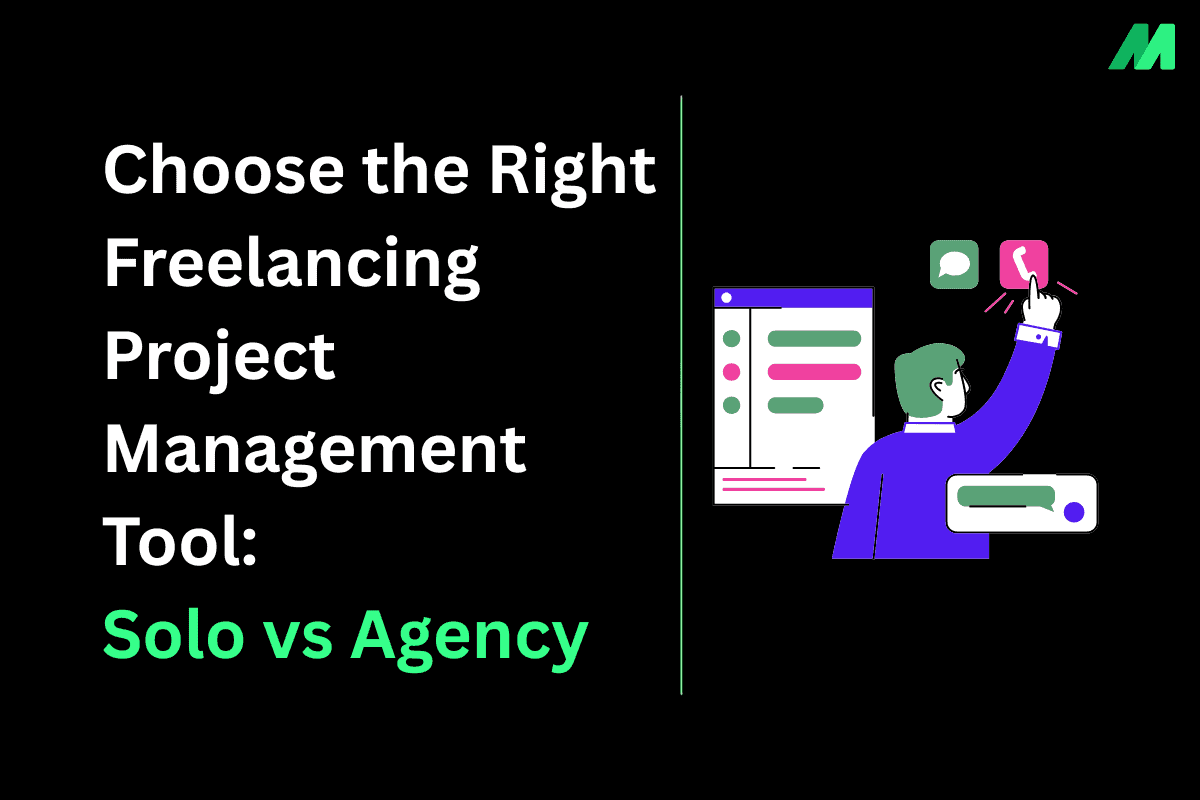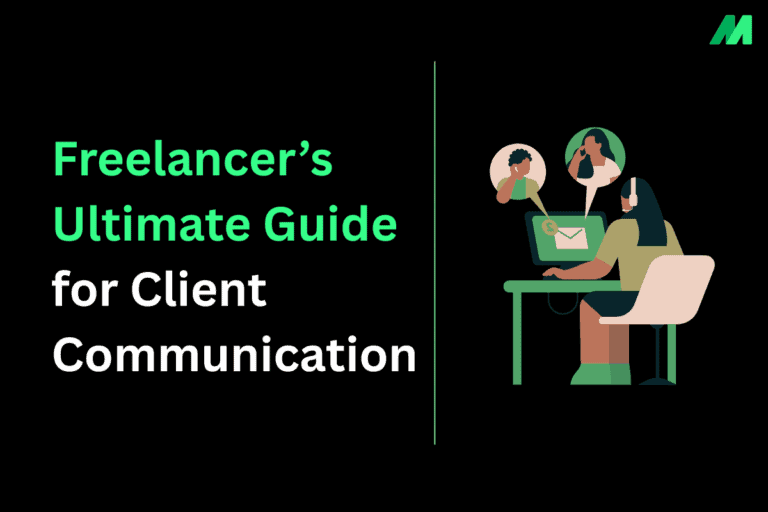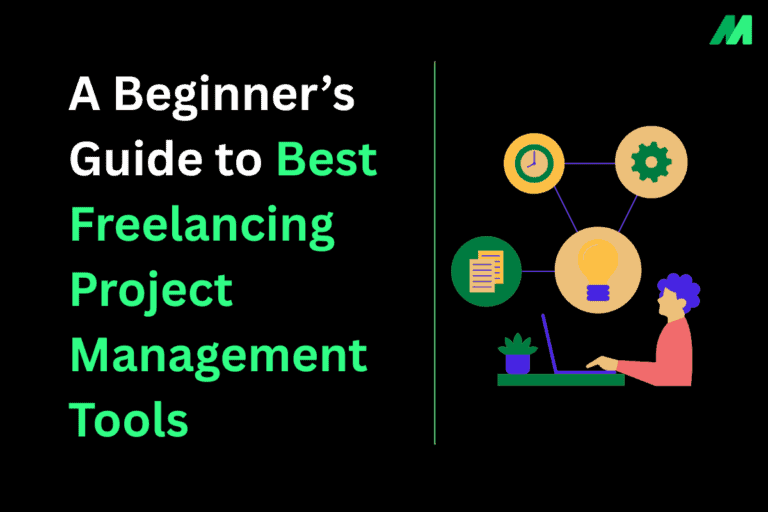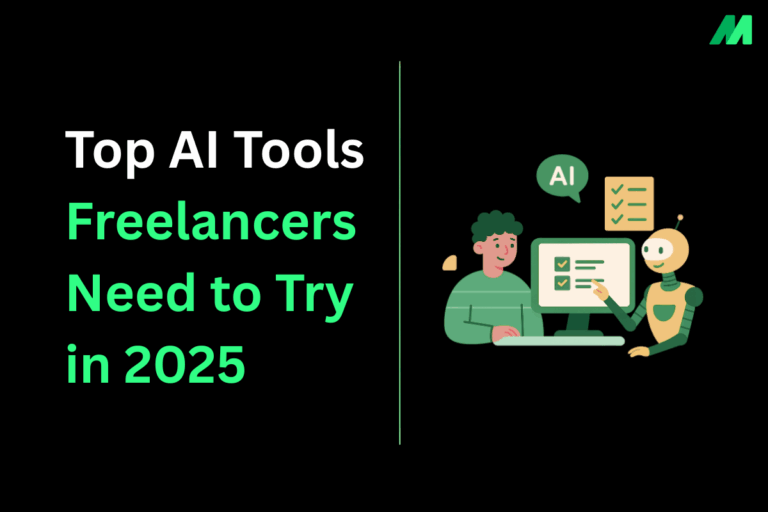Project management may seem like a big deal, but in effect, it is only managing your work so nothing falls through the cracks. Attached to a client or managing multiple teams and projects through an agency, an effective tool can save countless hours of anguish and restore a sense of order to your work life.
The issue arises when all project management tools are not designed with the same user in mind. What works great for the one-person shop may be far too straightforward for an agency, and what has been designed with all features for an agency may be too much for the solo professional.
So how do we know? Let’s go in order.
Project Management Tools for Freelancers and Agencies: Why You Need a Project Management Tool?
Think about it:
A freelancer lacking a project management tool may be stuck trying to manage sticky notes, missed emails, and reminders on the phone.
An agency without a project management tool faces miscommunication, missed deadlines, and confused clients simply because no team member knows who is doing what.
A good project management tool brings everything together: tasks, deadlines, files, updates, and collaboration. It’s like your digital command center.
| Tool Name | Best For | Why Choose It | Pricing |
|---|---|---|---|
| Trello | Freelancers & solo professionals | Simple Kanban boards (To-Do → Doing → Done), highly visual, great for task tracking | Free plan; paid from ~$5/user/month |
| Todoist | Solo professionals | Minimalist to-do lists with reminders; perfect for simplicity & personal productivity | Free plan; paid from ~$4/user/month |
| Notion | Freelancers, creatives | All-in-one space for notes, tasks, dashboards; very flexible for solo workflows | Free plan; paid from ~$8/user/month |
| ClickUp (Free Plan) | Freelancers, beginners | Offers tasks, docs, dashboards, and collaboration features without upfront cost | Free forever; paid plans start ~$7/user/month |
| ClickUp (Business Plan) | Agencies & teams | Combines docs, time tracking, dashboards, automations; scalable for growing teams | Business plan ~$12/user/month |
| Asana (Business) | Agencies & teams | Track multiple projects, portfolio & workload views, advanced collaboration | Free basic plan; Business plan ~$25/user/month |
| Teamwork | Agencies | Built for client services—includes billing, time tracking, client collaboration | Free plan; paid from ~$12.50/user/month |
| Monday.com | Agencies & growing businesses | Highly visual boards, automation, client dashboards; customizable workflows | Free plan (limited); paid from ~$9/user/month |
| Wrike | Agencies, enterprises | Strong dashboards, reporting, resource management; good for complex projects | Free plan; paid from ~$9.80/user/month |
| Jira | Software & agile teams | Ideal for agile project management, sprints, and dev teams | Free plan; paid from ~$7.75/user/month |
| Zoho Projects | Freelancers & small businesses | Affordable, feature-rich; integrates with Zoho suite; good for startups | Free plan; paid from ~$5/user/month |
| Basecamp | Agencies & client collaboration | Client-friendly platform with communication, file sharing, and project tracking | Flat pricing ~$15/user/month |
| Airtable | Freelancers & creative teams | Spreadsheet-meets-database with project views; great for creative workflows | Free plan; paid from ~$12/user/month |
Choosing a Tool as a Solo Professional
When you are working independently—such as being a graphic designer, writer, or consultant—you are doing it all: obtaining clients, executing the work, sending an invoice, and collecting the money. Therefore, a PM tool for you should be more of an assistant and less of a complicated system.
Features to Look For
- Ease of Use – You do not want to allocate hours to learn the tool.
- Simple Task Tracking – To-do lists with deadlines and reminders will suffice.
- Client Sharing (Optional) – A quick option to include a client if they would like see their progress.
- Affordability – A free or very low-cost tool that includes the bare bones.
Good Options for Solo Workers
- Trello → Visual boards where you move tasks from “To Do” → “Doing” → “Done.”
- Todoist → Include to-do lists reminders for people who value simplicity.
- Notion → A flexible all-in-one space for ongoing to-dos, notes, and project information.
- ClickUp (Free Plan) → Slightly advanced features (like dashboards and docs) that you don’t have to pay for upfront.
Example in Action: Say you are a freelance copywriter and decide to use Notion to create a simple dashboard: one course on “Active Projects,” another course on “Client Info,” the next page with a calendar for focus points that you are generating, so you all keep track of things the same way all in one space, not having to follow the 100,000th email thread where you have to filter out the last three you sent to see when/if you followed up on a task or invoice.
Choosing a Tool as an Agency
OK, let’s switch to a different topic. Operating as an agency with a team that is five, ten, or even more people is completely different. All of a sudden you are no longer just organizing yourself but coordinating others and managing client expectations and making sure deadlines are met.
In this situation, your tool needs to be absolutely project management hub where all team members know what they are accountable for, and managers can easily see visibility on delivery and project progress.
Features to Look For
- Collaboration – Delegate tasks to team members, provide comments and feedback for the work, and share files.
- Custom Workflows – Different projects may require Kanban boards or Gantt charts or timeline view.
- Reporting & Analytics – Who is productive, how healthy is the project, when is it due?
- Time Tracking & Billing – Critical if your agency bills hourly.
- Client Access – Guest or client portals so they don’t call you every day to check on progress.
Good Options for Agencies
- ClickUp (Business plan) → Combines a lot of features: docs, time tracking, dashboards, and automations.
- Asana (Business) → Perfect choice for tracking multiple projects, portfolio view, and workload view.
- Teamwork → Built for an agency – includes billing, time tracking, and collaboration with clients all in one.
Example in Action: Imagine a marketing agency with 10 different clients, with Monday.com you could create a different board for each client. Team members can be assigned tasks, deadlines will be in a shared calendar, your clients can log on and view progress without countless status update emails, and everyone in the agency can be on the same page.
Solo vs Agency: How to Decide
Here’s the simplest way to look at it:
- If you’re solo → Focus on tools that are simple, lightweight, and budget-friendly.
- If you’re an agency → Choose tools that are scalable, collaborative, and rich in reporting features.
Keep it simple. A freelancer does not need enterprise-grade reporting as much as an agency cannot run entirely on sticky notes.
Tips for Making the Right Decision
- Test it out before you go in for the long haul – Most have free options, so please use those as a start.
- Are they in alignment with your style – Do you think visually? If so, pick Kanban-type tools such as Trello. Prefer lists? Todoist or Asana would work.
- You want to plan for growth – Even if it is you, consider whether the tool can grow with you.
- Are there good integrations? – Does it connect with the tools you are already using to include but not limited to Google Drive, Slack, email, etc.
- Get buy-in (for agencies) – Your team will need to actually use the tool, so get them a part of the discussion.
There is no one-size-fits-all project management tool. The right choice depends on your setup and goals.
Freelancers and independent professionals are likely to find a simple and inexpensive (or free) tool (that is also easy to use) such as Trello, Todoist, Notion or ClickUp Free to be the most beneficial.
However, agencies and teams truly need a scalable collaborative platform such as ClickUp Business, Asana Business, Monday.com or Teamwork.
At the end of the day, the best project management tool is the right project management tool; as long as it helps you focus on achieving end results in a less chaotic and more organized way.
FAQ section.
1. How to pick the best project management tool for your setup?
The appropriate tool is determined by your size of the team, work type, and budget.
As a solopreneur, you will likely want something simple and inexpensive (like Trello or ClickUp Free).
As a small business or agency you will probably want more advanced features like time tracking, Gantt charts, or client collaboration (consider Asana or Monday.com).
For larger or technical teams, they will most likely go for something like Wrike or Jira that is created for working on multiple complex projects.
Pro tip: try the free trials so you can test it before investing time and money into it.
2. Simple project management tools for freelancers
Freelancers typically do not require complex tools for their business. They value simpler tools that are lightweight, flexible, and easy to use. Some great tools include:
- Trello – drag-and-drop task boards for tracking client projects.
- Notion – combines note-taking, project tracking, and a personal workspace.
- ClickUp Free – all-in-one task management with unlimited users.
These tools keep freelancers organized, help them stay on track with deadlines, and assist with managing clients without being too overwhelming.
3. Advanced project management software for agencies
Agencies are working with multiple clients, multiple team members, and multiple projects at once, while needing their tools to scale and have excellent reporting and collaboration. Some tools we like for agencies are:
- Wrike – customizable dashboards, resource management, time tracking.
- Asana Premium – advanced workflows, goals, and workload management.
- Jira – perfect for software development or agile teams.
- Monday.com – highly visual boards with automation for recurring work.
These tools have tons of features that allow agencies to streamline client projects, manage teams effectively, and deliver on time.
4. Affordable project management tools for solo professionals
For an individual or small-scale freelancer, cost may be an important consideration. Fortunately, there are many tools that have a free or low version:
- Trello (Free) – unlimited cards and up to 10 boards per workspace.
- ClickUp Free – powerful free plan with tasks, docs, and goals.
- Zoho Projects – affordable paid plans starting at just a few dollars per month.
- Airtable Free – great for creative freelancers who like spreadsheets + databases.
These tools have sufficient features to track tasks and conduct client work without sacrificing an important portion of an individual’s funds.
5. Project management tools with client collaboration features
If everything you do with a client is collaborative, consider a tool that allows a guest host, file sharing, and a communication interface with them. Examples include:
- Basecamp – built specifically for team + client communication.
- Asana – lets you invite clients as guests to specific projects.
- Monday.com – external shareable dashboards for clients.
- Wrike – secure client collaboration with permissions and approvals.
These tools invite the client into the collaboration by allowing the client to see your progress, commiserate on issues as they unfold, and integrate client feedback as you go along.
6. Which project management tool is best for small businesses?
Small businesses need a tool that is simple to adopt, cost effective, and has longevity for future growth. Great options are:
- Asana – simple to get started, yet powerful enough as your business grows.
- Monday.com – highly visual and customizable workflows for different teams.
- Zoho Projects – cost-effective for growing businesses.
- ClickUp – one platform that combines tasks, docs, chat, and goals.
The best choice of tools will depend on the size of your business and how you plan to do business. For example, a marketing agency might prefer Asana, while a product team might prefer Monday.com.




